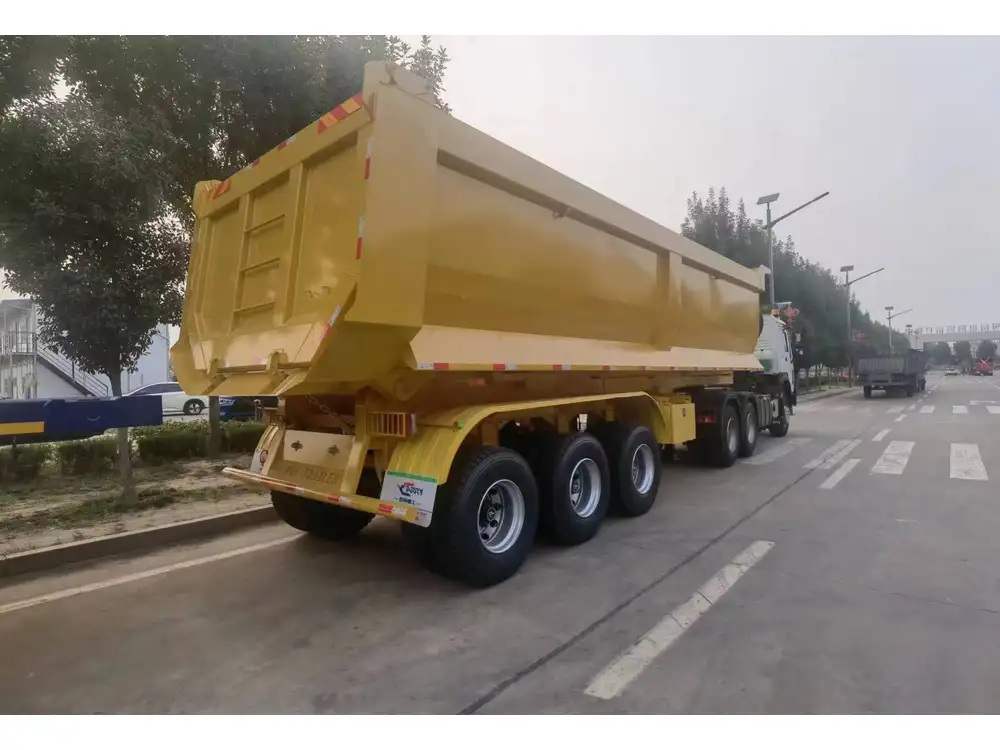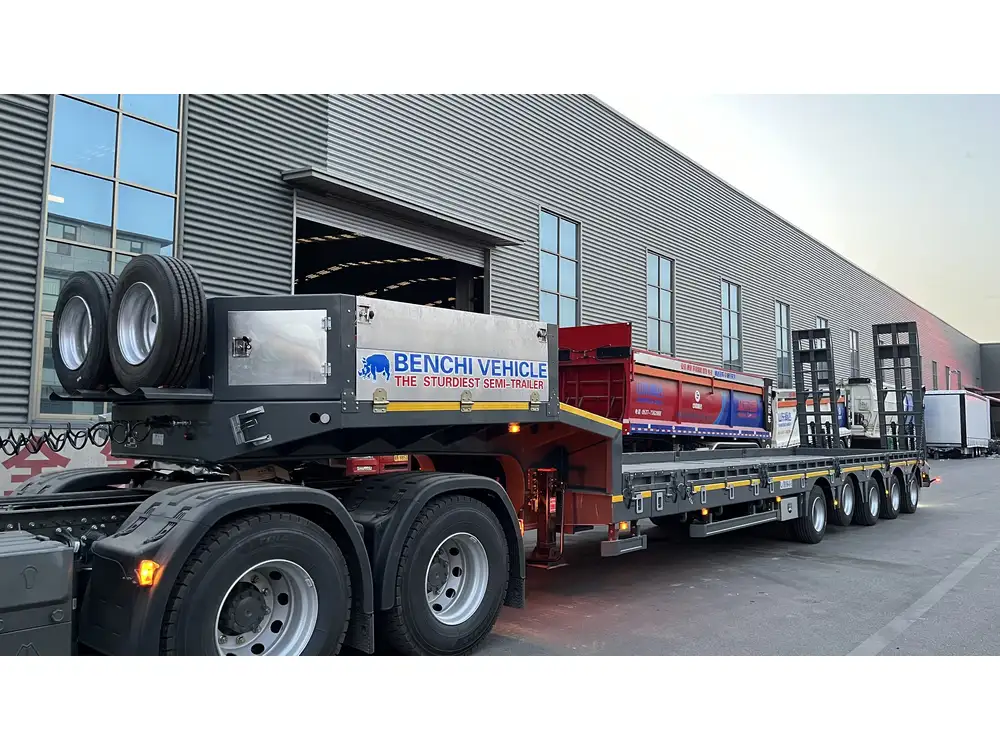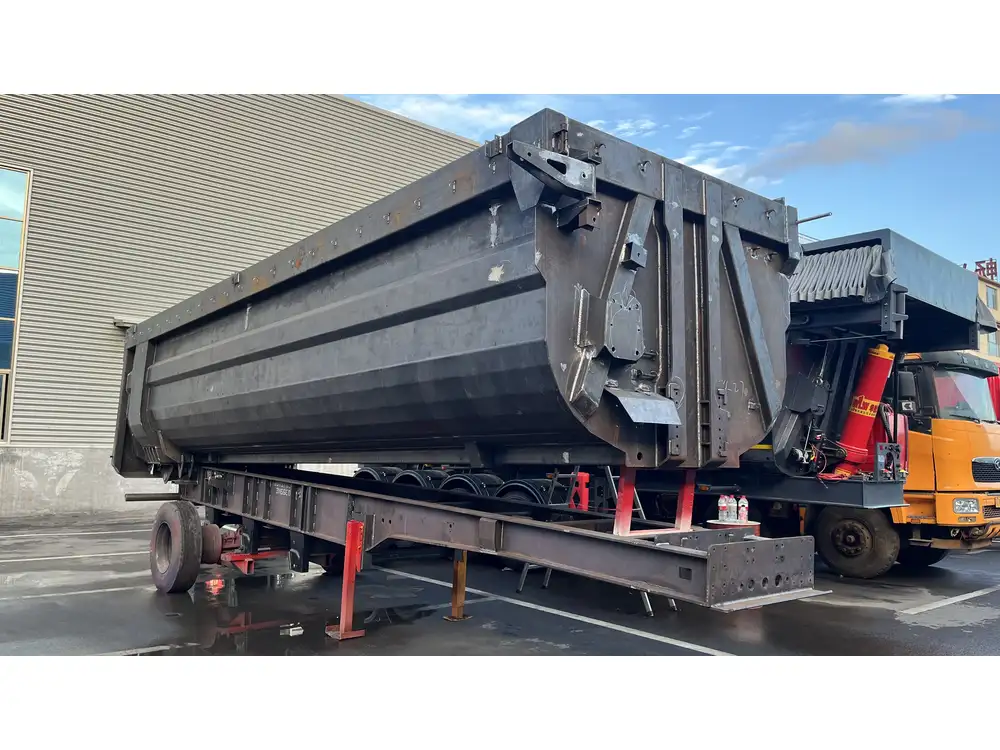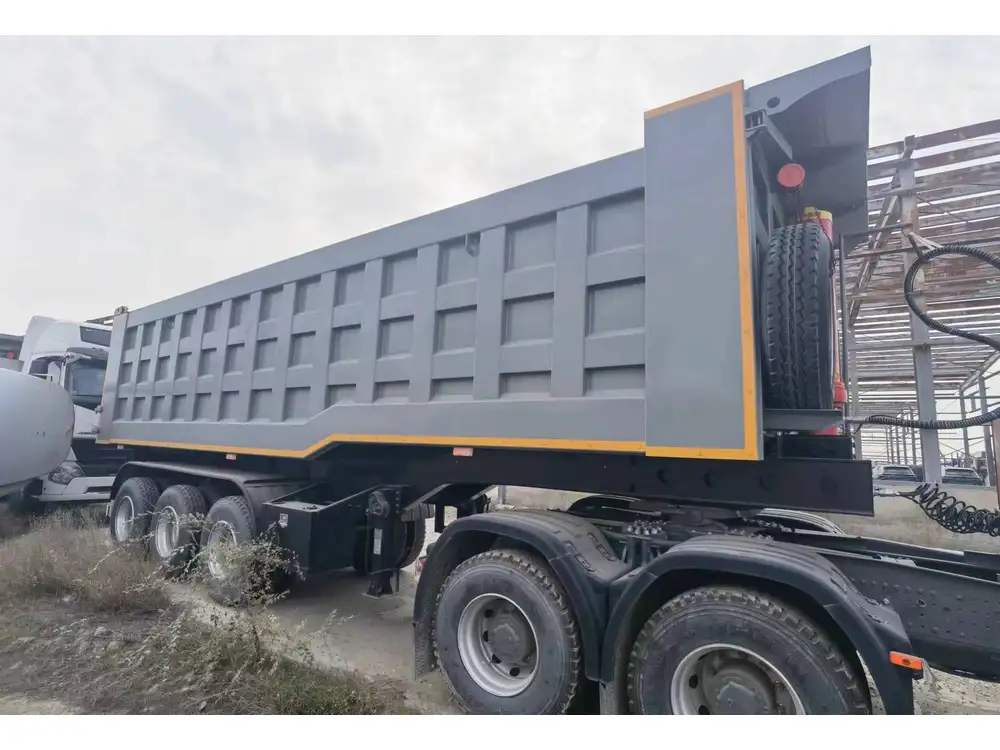When it comes to transporting large, heavy, or oddly-shaped cargo, flatbed trailers serve as an indispensable asset. Their open design and robust structure make them ideal for a wide range of applications, from moving construction equipment to hauling pallets of goods. In this detailed guide, we delve deep into various methodologies for locating, renting, and utilizing flatbed trailers effectively to meet your specific needs.
Understanding Flatbed Trailers
What is a Flatbed Trailer?
Flatbed trailers are specialized transport vehicles featuring a flat, cargo-carrying surface without sides or a roof, allowing for versatile loading options. These trailers are available in various sizes and configurations, making them suitable for diverse hauling requirements. The absence of physical barriers enables easy loading and unloading from any angle, especially in challenging scenarios.

Types of Flatbed Trailers
| Trailer Type | Description | Ideal Uses |
|---|---|---|
| Standard Flatbed | Basic design with no sides or cover. | General freight, materials transport. |
| Drop Deck | Lowered bed height to accommodate taller loads. | Heavy machinery, oversized cargo. |
| Step Deck | Two levels; upper deck is shorter. | Taller cargo that requires extra height clearance. |
| Gooseneck | Tow type with an elongated neck for stability. | Large loads, especially in construction. |
| Lowboy Trailer | Extremely low-profile for heavy equipment. | Heavy equipment, such as bulldozers and cranes. |
By understanding these variations, you can better determine which type suits your transport endeavors.
Key Considerations When Renting a Flatbed Trailer
Identifying Your Needs
Before seeking rental options, clarify your specific requirements:
- Cargo Type and Weight: Determine both the nature and total weight of the materials you intend to transport.
- Distance and Duration: Understand how far and for how long you will need the trailer. This will affect rental costs and availability.
- Loading and Unloading Locations: Evaluate the accessibility of sites where loading and unloading will occur.

Licensing and Regulations
When renting a flatbed trailer, it’s crucial to be aware of local regulations regarding towing and transporting goods. Familiarize yourself with licensing requirements for operating a trailer, which can differ by state or country. Compliance with weight limits, special permits for oversized loads, and insurance coverage are fundamental aspects to verify before initiating any transport.
Where to Rent a Flatbed Trailer
1. Rental Companies
Many established rental companies cater to those seeking flatbed trailers. Some well-known names include:
- U-Haul
- Penske
- Budget Truck Rental
These rental giants provide not only flatbed trailers but also a range of related services. Be sure to contact them for availability and pricing details tailored to your specific requirements.

2. Local Equipment Rental Stores
Local equipment rental stores often carry a selection of flatbed trailers. In addition to renting trailers, these establishments may also provide necessary equipment for loading and unloading, improving efficiency.
3. Peer-to-Peer Rental Platforms
Online platforms have made it easier than ever to rent equipment directly from individuals. Websites such as:
- Fat Llama
- Turo (for trailers)
- RentMyEquipment
4. Specialized Flatbed Trailer Rental Companies
A number of companies specialize purely in trailer rentals, including:
- Big Tex Trailers
- TrailersPlus
These businesses often offer a wider range of specific trailer types (e.g., lowboys, goosenecks) and could better suit niche transportation needs.

5. Direct from Manufacturers
Some manufacturers may offer flatbed trailer rentals directly. This option can often lead to better rates since you’re bypassing middlemen. Companies like Wabash National and Utility Trailer Manufacturing Company may have rental options.
Pricing and Terms of Rental
Understanding Costs
Rental rates for flatbed trailers vary based on several factors:
- Type of Trailer: Specialized trailers often come at a premium price.
- Duration of Rental: Daily, weekly, or monthly rates fluctuate accordingly.
- Distance Traveled: Many rental companies charge additional fees based on mileage.
- Required Insurance: Coverage might add an extra charge.
Here’s a general pricing table for reference:
| Trailer Type | Daily Rental Rate | Weekly Rental Rate | Monthly Rental Rate |
|---|---|---|---|
| Standard Flatbed | $50 – $100 | $300 – $600 | $900 – $2000 |
| Drop Deck | $70 – $120 | $400 – $700 | $1200 – $2300 |
| Lowboy Trailer | $80 – $150 | $500 – $900 | $1500 – $3000 |

Rental Terms
Always scrutinize rental agreements carefully:
- Deposit Requirements: Many companies require a security deposit that may or may not be refundable.
- Mileage Restrictions: Check if there’s a mileage cap; exceeding it might lead to additional fees.
- Maintenance Responsibilities: Understand who is responsible for trailer upkeep during rental.
Efficiently Using Your Rented Flatbed Trailer
Loading and Unloading Best Practices
- Plan Your Load: Prioritize even weight distribution to enhance stability during transit.
- Use Proper Tie-Down Techniques: Secure your load effectively, utilizing chains, straps, and ratchet binders.
- Check Local Regulations: Know the rules about securing loads and visibility markers.

Safety Measures
- Conduct a Pre-Trip Inspection: Check the trailer’s tires, brakes, and lights.
- Familiarize with Towing Procedures: Understanding how to hitch and unhitch properly is paramount, as is being aware of towing capacities.
- Utilize Safety Gear: Reflective vests and cones are essential for safe unloading in roadside situations.
Troubleshooting Common Issues
Flat Tire or Trailer Malfunction
In the event of a flat tire:
- Pull Over Safely: Find a level, safe area away from traffic.
- Use the Provided Equipment: Renters should receive tools for minor repairs or tire changes.
- Contact Rental Agency: Report malfunctions immediately; understand their roadside assistance policies.

Weight Distribution Problems
If you encounter issues with weight distribution:
- Reassess Your Load: Make necessary adjustments to redistribute weight evenly.
- Consult with Professionals: Seek advice from rental agency staff or logistics experts to avoid safety hazards.
Final Thoughts on Flatbed Trailer Rental
Navigating the process of renting a flatbed trailer doesn’t have to be a daunting challenge. By understanding your specific requirements, utilizing reputable rental sources, and adhering to safety and maintenance protocols, you can enhance your efficiency and peace of mind throughout the transportation process. Remember to consider factors such as trailer type, costs, and rental terms to ensure you have the right equipment for the job.
FAQs on Flatbed Trailer Rentals
How do I know which flatbed trailer size to rent?
- Assess the dimensions and weight of your cargo; consult with rental companies for recommendations based on your specifications.
What permits do I need for oversized loads?
- Regulations vary widely; check with state transportation departments for local guidelines and ensure compliance.
Can I rent a flatbed trailer for long-term projects?
- Many companies offer attractive pricing options for long-term rentals; inquire directly to find the best deal for ongoing needs.
By addressing these multifaceted aspects of flatbed trailer rentals, we hope this guide facilitates a smoother and more informed rental experience that ultimately leads to successful transport solutions.



